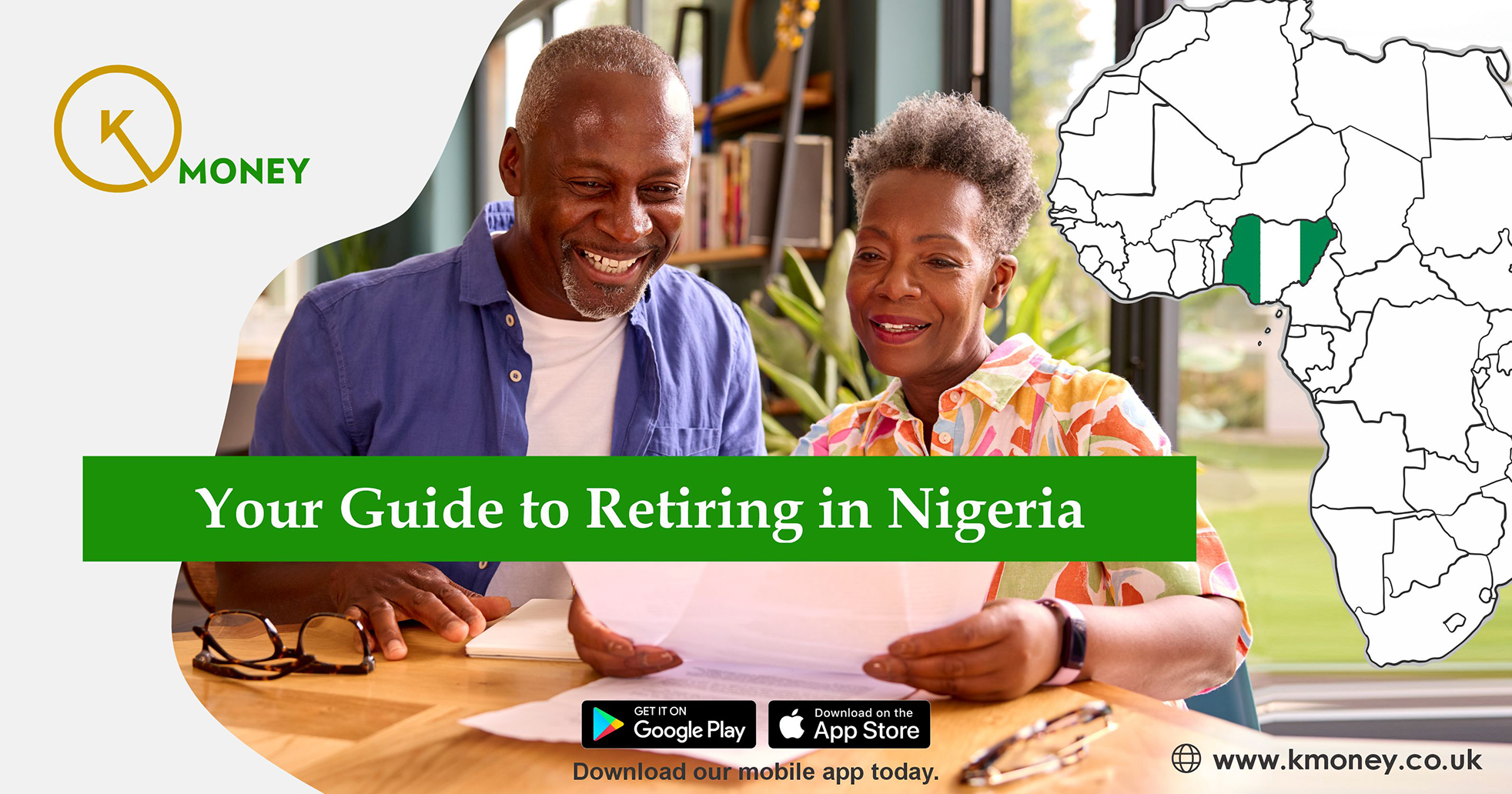
Your Guide to Retiring in Nigeria
Retiring in Nigeria offers a rich culture, lively cities, and warm hospitality. Whether you love busy markets, peaceful countryside, or reconnecting with your roots, Nigeria can be a great retirement choice. Here’s the Nigeria retirement guide for an easy experience.
What is the Cost of Living in Nigeria?
The Nigerian cost of living differs based on city and lifestyle. Lagos and Abuja are relatively pricey, while smaller cities and rural areas have a lower cost of living. On average, monthly expenses for rent, food, utilities, and transportation range from ₦150,000 to ₦500,000 (£150-£500) based on lifestyle.
Imported products and eating in luxury restaurants will be costlier, but markets and services locally can easily make your money go further.
How Much Do You Need to Save?
To retire comfortably in Nigeria, it’s essential to plan your finances well. Consider your monthly expenses, healthcare costs, potential travel, and any emergencies. A rough estimate for a comfortable retirement could be around ₦20-₦30 million (£20,000-£30,000) in savings, depending on your lifestyle.
Additionally, maintaining an emergency fund and exploring pension or investment options can provide financial security.
Visas & Other Documentation
Nigeria offers different visa options for British citizens and other migrants. There is no specific Retirement Visa, but retirees can apply for long-stay visas or residence permits. Those with Nigerian roots can apply for dual citizenship to simplify the process.
Make sure your passport is valid for a minimum of six months, and stay informed about any changes in visa requirements through the Nigerian High Commission.
Healthcare in Nigeria
Nigeria has both public and private healthcare. Private hospitals offer better care but can be expensive. Having good health insurance, including medical transport if needed, is important. Some retirees travel to nearby countries for affordable, quality treatment.
Housing
Housing options in Nigeria range from modern apartments in urban areas to homes with large spaces in calm regions. Renting is popular among migrants, with rent for a one-bedroom apartment in city centres averaging around ₦300,000 to ₦800,000 (£300-£800) per month.
Buying property is also an option but involves facing complicated legal procedures. Working with a trusted real estate agent can help avoid potential challenges.
Managing Your Retirement Finances
Efficiently managing your finances is crucial when retiring abroad. Ensure you have access to your pension and savings, and explore the best money transfer service from the UK to Nigeria to minimise fees and ensure quick transactions.
Many retirees maintain international bank accounts while opening local accounts for day-to-day expenses. Budgeting, tracking expenses, and maintaining financial discipline will help your retirement funds last longer.
Final Thoughts
Retirement in Nigeria can be a rewarding experience with proper planning. By understanding the cost of living, securing the right visa, prioritising healthcare, finding the perfect home, and managing your finances wisely, you can enjoy a relaxed and fulfilling retirement.
With KMoney, sending money from the UK to Nigeria is fast, secure, and hassle-free—helping you support loved ones or plan for your retirement with ease.
Enjoy low fees, an easy transfer process, and quick transactions, making it the perfect way to send money effortlessly with KMoney.
Start building your retirement dreams today!